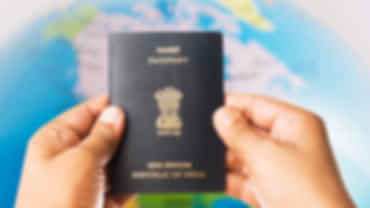All About The New Travel TCS 2025
Author
Akshaya Manoharan
Date of Publishing
October 19, 2023
Read
3 minutes

If you are planning an international trip with any travel company, you must be aware of the new Tax Collected at Source (TSC) rule. For every online and offline booking of an international tour package that costs more than Rs 7 lakhs in a financial year, the traveler has to pay TCS at 20%. For packages costing less than or equal to Rs 7 lakh, TCS will be levied at 5%.
What is TCS?
The tax known as TCS (Tax Collected at Source) is imposed by the Indian government on particular transactions and is typically collected at the point of sale. When traveling abroad, take into account the following advice to minimize or completely eliminate TCS:
Ultimate guide to bring your travel TCS to Zero in 2025
- Recognize TCS Rules: Become acquainted with the most recent TCS guidelines and policies in India. It is important to stay informed about the most recent regulations because they may change in the future.
- Plan Expenses: Before and during your trip, make sure to thoroughly plan your expenses. Try to cut down on or do away with high-value transactions that require TCS.
- Prepaid Forex Card: When making foreign exchange transactions, think about utilizing a prepaid forex card rather than credit or debit cards. TCS is typically not levied on forex card transactions.
- Reservations for Travel and Lodging: To make reservations for travel and lodging, use websites and travel agencies with headquarters in India. The use of overseas services in transactions could result in TCS charges.
- Currency Exchange: To avoid paying transfer fees when exchanging foreign currencies, exchange currency through banks or authorized dealers in India.
- Presents and Money Transfer: Exercise caution when sending or accepting gifts from overseas. If these transactions surpass predetermined thresholds, TCS may be incurred.
- Internet shopping: Take into consideration the TCS implications for any online purchases you make while traveling. Some online purchases from foreign websites could be subject to TCS.
- Cash Withdrawals: Restrict your use of foreign ATMs for cash withdrawals. You might pay extra fees or experience bad exchange rates when taking out cash, even though TCS is not directly relevant.
- Remain Informed: Remain abreast of any modifications to TCS policies and guidelines. You can make educated decisions by being aware of these regulations, which can change from time to time.
- Seek Professional Advice: If you have complex financial transactions during your overseas travel, consult a tax advisor or financial expert who can provide specific guidance based on your circumstances.
- Remember that while it’s essential to plan your expenses to minimize TCS, it’s also crucial to comply with the tax laws of your home country, as attempting to evade taxes can lead to legal and financial consequences. Always consult a tax professional for advice tailored to your specific situation, as tax laws can be complex and subject to change.
Conclusion
Finally, keep in mind that TCS is not an extra income tax. While submitting your income tax return (ITR), you have the option to modify the amount deducted as TCS against your tax obligation. You can receive the TCS back as a refund if you owe no taxes. Paying TCS, however, can lead to a cash flow problem because the money is blocked until you receive your refund.
Recommended articles for you
Discover Packages



























